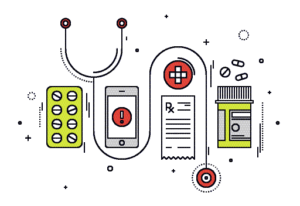It’s too easy for social care providers to become siloed. By this, we mean that different organizational programs can become closed off. This is especially true if other parts of the organization deal with diverse populations and if those programs have distinct information about their clients. For example, the client data collected for an after-school program will inevitably differ from those contained for an abuse shelter or a parenting class.
If not handled well, intakes can become onerous and inefficient. Furthermore, some clients may not be eager to share their information, depending on the service they’re looking for. So how does an organization establish reasonable intake procedures while protecting clients’ privacy?

Reasons for Standardization and Centralization
Inefficiency is the primary benefit of standardizing and centralizing your intake. Collecting uniform information allows an organization to share data across sectors easily. That way, clients don’t have to submit a new round of data if they are referred to a different program within the org. This helps save time for the staff and prevents the clients from potentially having to relitigate the traumatic or stressful situations that brought them to your door.
Standardizing intake also ensures that your organization collects all the data it needs for reporting and analysis. For example, depending on your firm’s funding source, you may need to report on client demographics, socioeconomic backgrounds, and geographic origins. Ensuring that all of that information is collected upfront will ensure that you don’t have to scramble to collect it later.
Making Your Clients Feel Welcome
Even after you standardize your intake process, you’ll still need to structure it well. For example, will you have dedicated staff members doing intakes and assessments? Or will staff members share the load? Moreover, will potential clients be able to fill out their own inputs in person on a computer or over the phone?
There are benefits to every approach. For example, having a dedicated intake specialist or assessor is an excellent way to establish a relationship with a client early on, especially if that specialist is well-trained and familiar with your client population. Then again, some organizations may not have the resources to have a dedicated staff for new client data, so many staff members will likely need to be familiar with the intake process.
Some clients, especially if they’ve recently gone through trauma, may not be comfortable sharing their stories with a stranger—understandably. In those situations, it’s good to have the option for a client to fill out their intake questionnaires on their own, either using a computer kiosk, a tablet, or a paper form that can later be transposed electronically.
Luckily, AI platforms like C3S allow organizations to standardize and adapt their intakes according to the clients’ and organizations’ needs. AI is easily adaptable for use with trained intake staff members, but you can also set it up so that clients can fill out their forms in privacy. Moreover, the HIPAA-compliant platform ensures that personal information is safe and protected.
Reach out today if you’re interested in learning more about how AI can help reduce intake stress.

Recent Comments